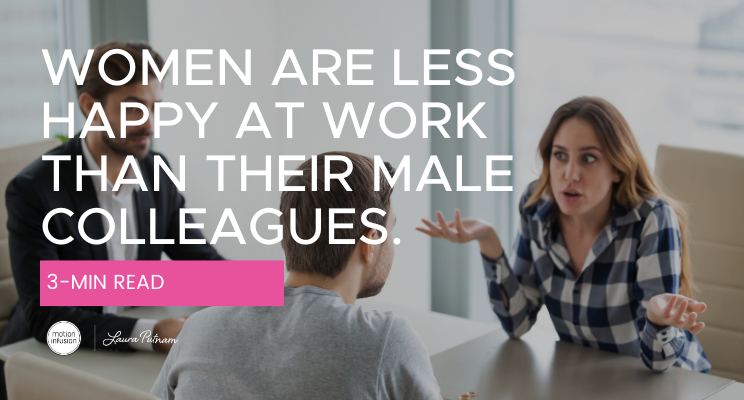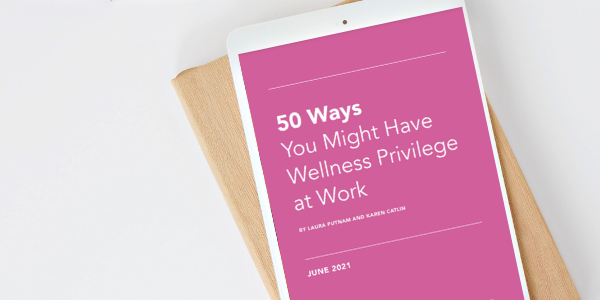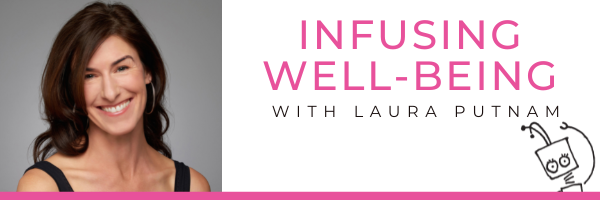|
A recently released study shows that workers are happier at work, but women are less happy than their male colleagues. Come on – are we really surprised by this? Ask any woman – or if you’re a woman, ask yourself – and she will surely tell you about a time when she was minimized, not credited or wholly removed from organizational history – not to mention, underpaid or even sexually harassed. These are all part of the collective experience for women in the workplace. Case in point: I was asked to create and deliver a two-day leadership-meets-wellness training program for high-potential managers at a multinational corporation. I, along with a female manager on the organizational development team who originally hatched the idea, worked tirelessly in creating and delivering the program. The VP of HR at the time (also a woman) was the one who championed the program, serving as our opening keynote. In other words, the program — start to finish — was initiated by, created by and led by women. The program turned out to be a huge success, described by many of participants as “the best training program we’ve ever had” and the effects of it went viral across the organization. Several months later, the program was featured as a cover story. In the retelling of the story, however, every single woman was completely extracted — as if, the entire initiative had been created and delivered by men only. Who appeared on the cover? A man. Who purportedly conceived the idea and implemented it? Men! Even my exact words were stolen from me, attributed to a man. I wish I could say that this was a one-off, something that only I have experienced. But, as we all know, these kinds of stories are commonplace. It’s no wonder why women are less happy at work than their male counterparts! So, why is this happening? At the heart of women reporting lower happiness is “wellness privilege.” Like any privilege, wellness privilege refers to the extent to which individuals are experiencing well-being based on unearned benefits or advantages, often shaped by gender, race, health, physical abilities and other factors. Until we meaningfully address wellness privilege in the workplace, we will likely continue to see a gap in reported levels of happiness at work between men and women. This concept of wellness privilege is derived from 50 Ways You Might Have Wellness Privilege at Work, a checklist I co-created with DEI expert Karen Catlin. Consider some of the ways it shows up in the workplace: “I feel I’m fairly compensated for the work I do and for my performance.” Even with all of the conversations about breaking the glass ceiling, Pew Research shows that the gender pay gap has remained abysmally stable over the past two decades, with women earning an average of 82% of what men do. This alone ought to account for why women aren’t as happy as men at work. How can women possibly feel as happy as men when they know that they’re likely earning significantly less? Of course men are happier at work! “I get equal airtime in conversations and meetings; I feel valued and rarely interrupted or ignored.” Getting interrupted, being talked over, and ignored happens a lot to women (along with people of color and other marginalized workers in the workplace). According to a 2014 George Washington University study, men interrupt women 33% more often than when they’re speaking to other men. “I’m confident that if I raise an idea in a meeting, I’ll be credited for that idea.” As my story speaks of, too often a man gets the credit when the woman is the one who earned it. So, what can we do about it? Rectifying wellness privilege at work, which undoubtedly benefits men over women, will require more than just individual allyship. It will require systemic shifts, across the organization and within every team. For decades, businesses have perceived their employees’ well-being and levels of happiness as an individual responsibility. Today, businesses need to understand that employee well-being is a collective responsibility that necessitates a holistic approach and support from the CEO down. Managers play a critical role in cultivating a psychologically safe and caring workplace environment. Every manager needs to pay attention to the social dynamics within the team ensuring, for example, that airtime is equitably shared and that individuals are rightfully credited for the work they do. DOWNLOAD THE WELLNESS PRIVILEGE TOOLKIT HERE.
0 Comments
Leave a Reply. |
Follow laura on social:Website by Brand Genie
|
join laura's monthly newsletter
|





